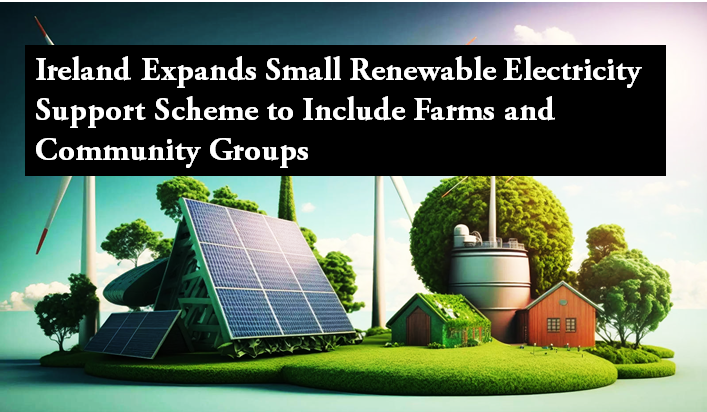Dublin: The Irish government has launched the second phase of the Small Renewable Electricity Support Scheme (SRESS), enabling farms, businesses, and community groups to become electricity producers. This expansion builds on the existing scheme, which was initially limited to small and large power producers, to now include agricultural lands and various community settings.
Key Components of Solar Strategy
Environment Minister Eamon Ryan highlighted SRESS as a crucial element of the government’s solar energy strategy. The scheme is part of Ireland’s ambitious targets to achieve 5 gigawatts of solar power by the end of 2025 and 8 gigawatts by 2030. Currently, Ireland generates less than 1 gigawatt of solar power, ranking below seven other EU countries. The goal is to produce 80 percent of the country’s electricity from renewable sources by 2030, doubling the current production levels.
SRESS offers participants the opportunity to generate their own electricity and feed it back into the national grid, primarily targeting solar power but also applicable to small wind farms. The scheme, previously limited to small and medium-sized businesses, now includes a broader range of applicants.
Eligibility and Benefits
Under the new scheme, buildings such as high-rise industrial estates, shops, schools, swimming pools, and community centres can participate. Solar installations ranging from 125 to 12,500 panels can generate between 50 kilowatts and six megawatts of electricity. Additionally, the existing micro-generation scheme allows households and small property owners to produce and distribute their own electricity via rooftop solar panels, with the option to sell surplus power back to the grid.
The updated SRESS arrangements cater to wind and solar companies producing electricity on an industrial scale for profit. The scheme introduced last summer permitted small businesses and groups to generate less than one megawatt of solar power for their own use and sale. The new phase focuses on generating electricity exclusively for export.
Financial Guarantees
The government guarantees payment for the electricity generated under SRESS. Payments are determined based on a tariff calculated per megawatt-hour. Farms and businesses will receive €80 per megawatt for wind power and €120 for solar power, while community groups will receive €90 and €140, respectively. If the market price is lower than the SRESS tariff, the government will cover the difference.
Implementation Timeline
All terms and conditions of the expanded scheme are expected to be published in July, with applications open by the end of the year. The government has outlined the scheme details to inform the public and potential participants.
This initiative is a significant step towards achieving Ireland’s renewable energy goals and promoting sustainable energy practices across various sectors.
Irish Samachar English News
{OR} Kindly click to follow the Irish Samachar News channel on WhatsApp


Comments are closed.